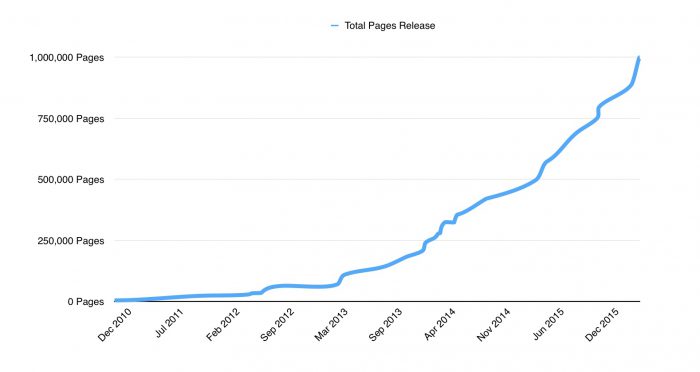The six-year-old site, which spent some time in The Boston Globe’s incubator program, offers a platform through which users can group FOIA requests under one overarching project, and launch a crowdfunding campaign to help cover the requests-related reporting expenses. (We wrote about the Projects feature last fall, but it’s opened up to all users as of June 3.) About 50 projects — ranging from one looking into surveillance in Chicago to another that’s trying to release genealogical and archival data — have already been created so far, and MuckRock in total has facilitated more than 22,000 public records requests.
Half of those requests have been filed in the past year, MuckRock’s cofounder Michael Morisy told me. The site has roughly doubled its revenue (as well as audience size and requests filed) each year of its existence, Morisy said, but was concerned about maintaining independence while growing the business.

“We had a lot of conversations about what was important to us, what was the way to keep our independence. We talked with peer organizations that have gone down the nonprofit road,” Morisy said. “It kept coming back to to our long-term independence.” (A lot of MuckRock users — raise your hand if you’re one of them — already assumed MuckRock was a nonprofit, he said.)
The company has gotten some support through foundations, and generates revenue through site members who pay for filing requests and requests-related services. In addition to interested individuals, MuckRock’s user base now also includes news organizations like Gawker, the International Business Times, Vice’s Motherboard, and Vocativ. The nonprofit move won’t change how MuckRock operates, but will open it up to tax-deductible donations and the option to pursue targeted grants, though “it’s important for us not to be too grant dependent”:
For our users and readers, almost nothing about the site’s operations will change. It’s the same people, doing the same work, day in and day out.
We’ve always worked to run our filing service at break even or at a modest profit so that we can reinvest in the site’s operations, and we’ll continue to do so. We believe that the site will operate best if our ongoing financial needs are covered by those who value our work and directly benefit from our services.
“FOIA requests is a low-margin business anyway,” Morisy said. “This will free us up to build a self-sustaining organization that grows in the way we want to grow.”
Leave a comment